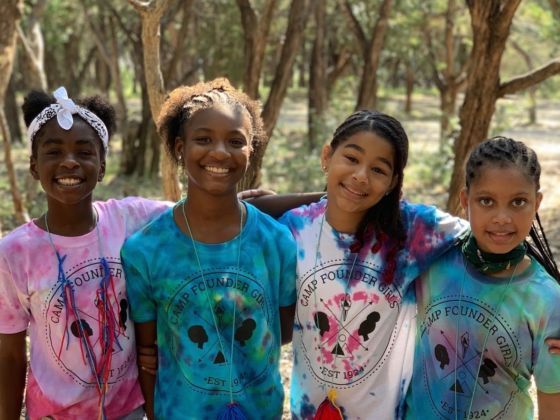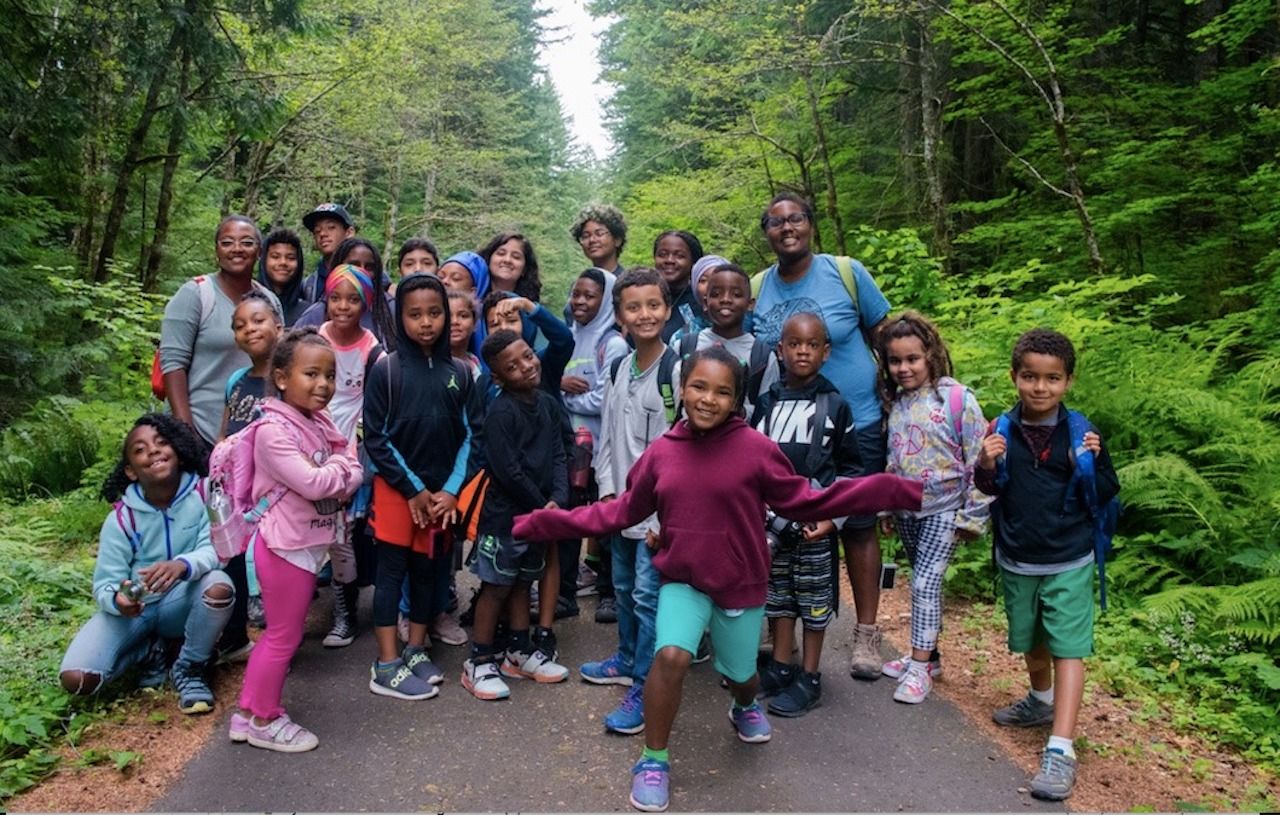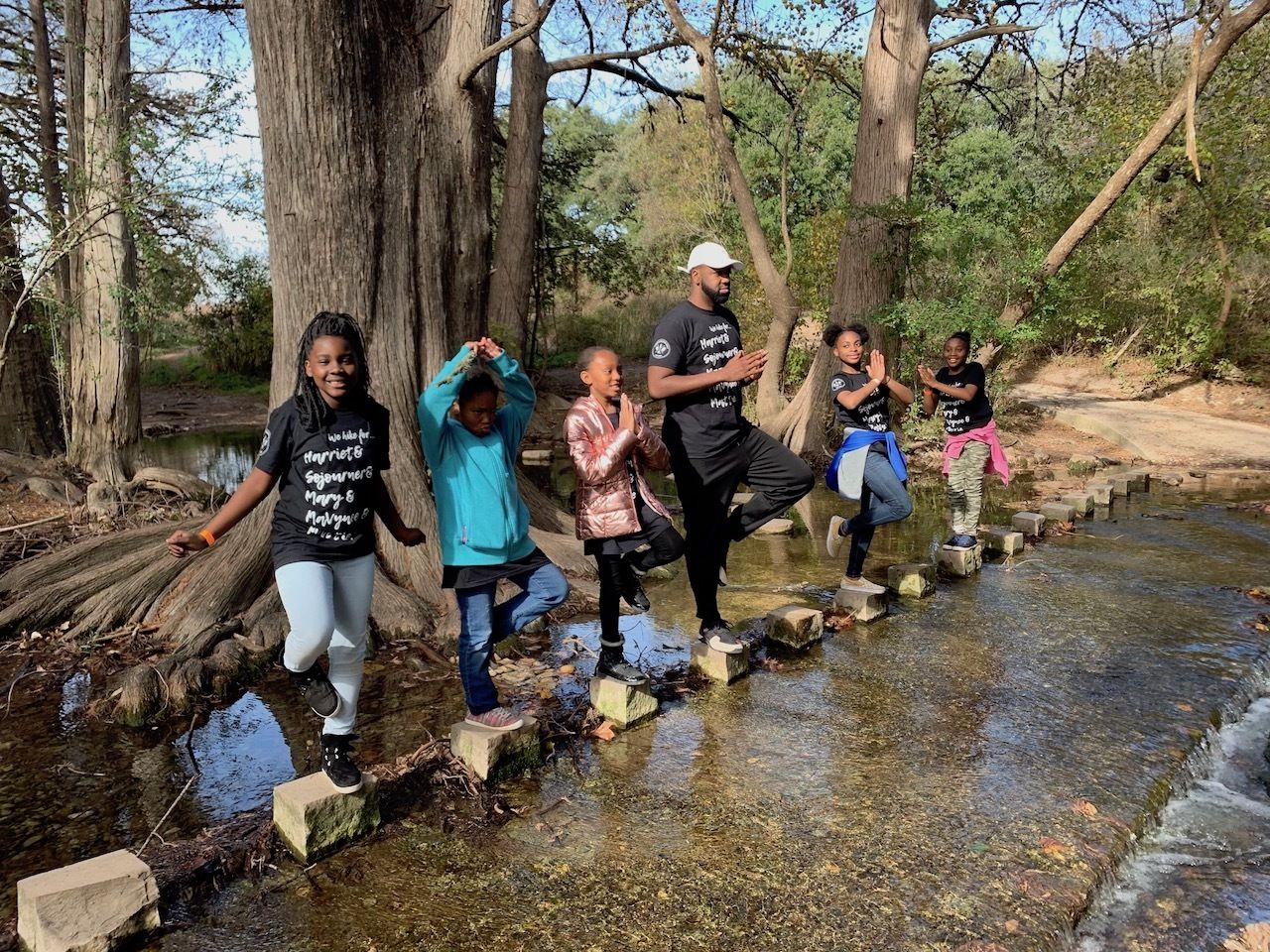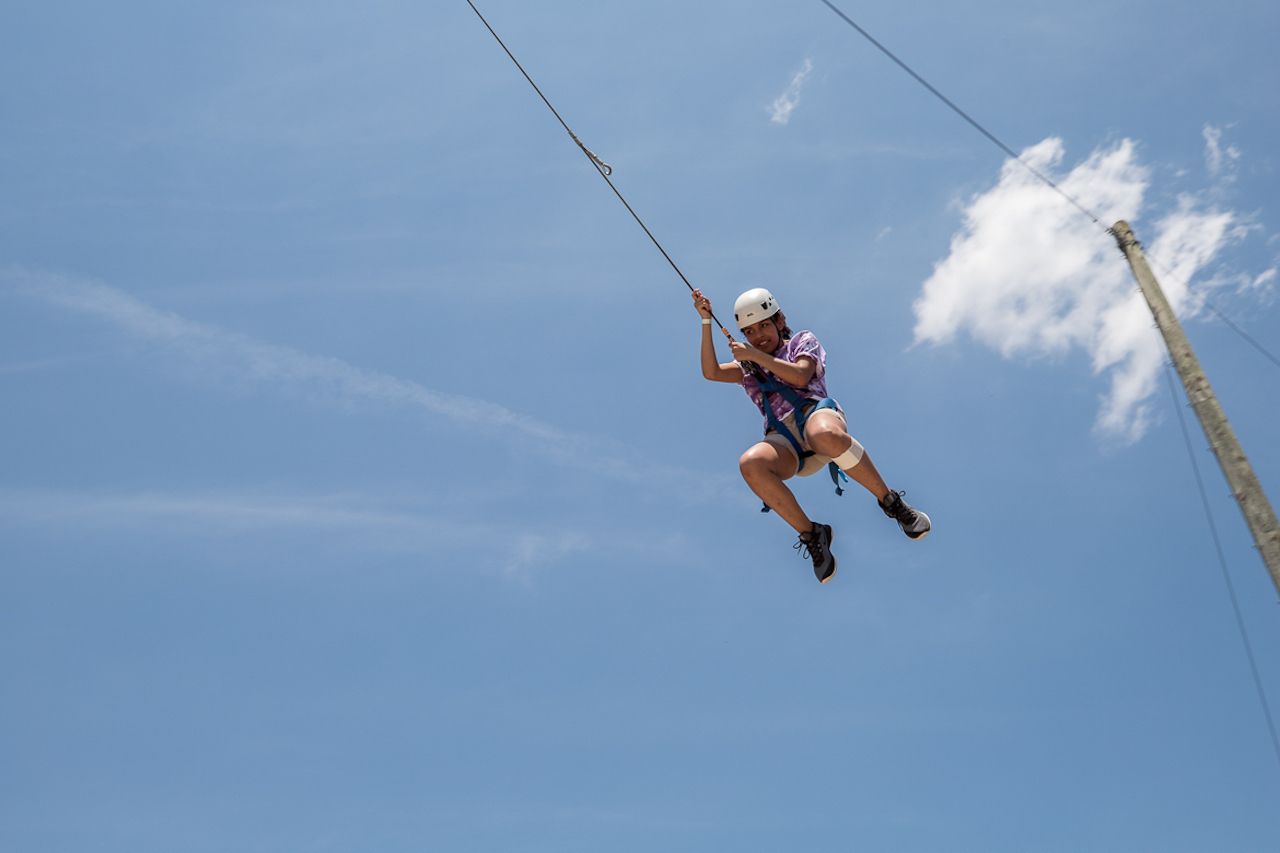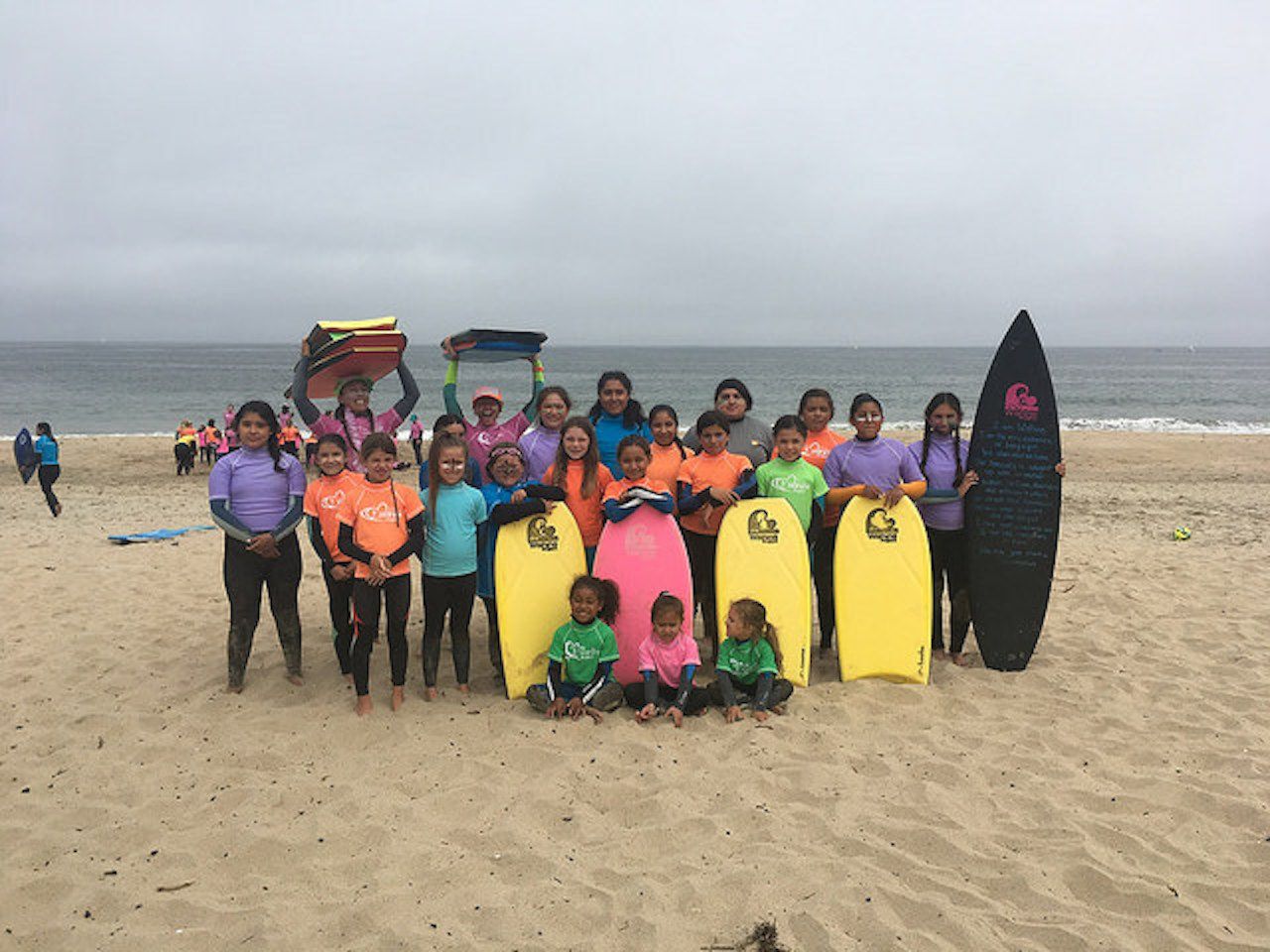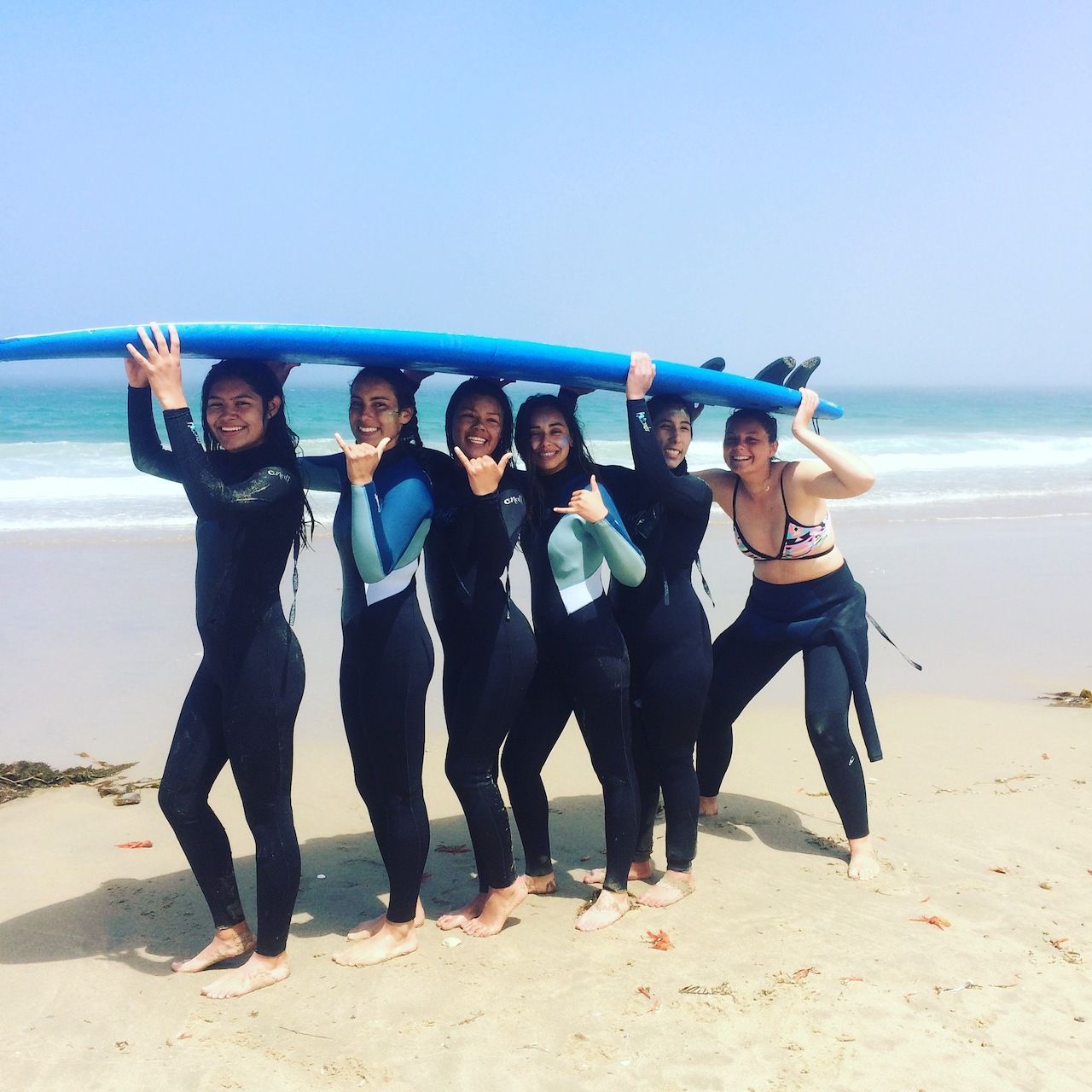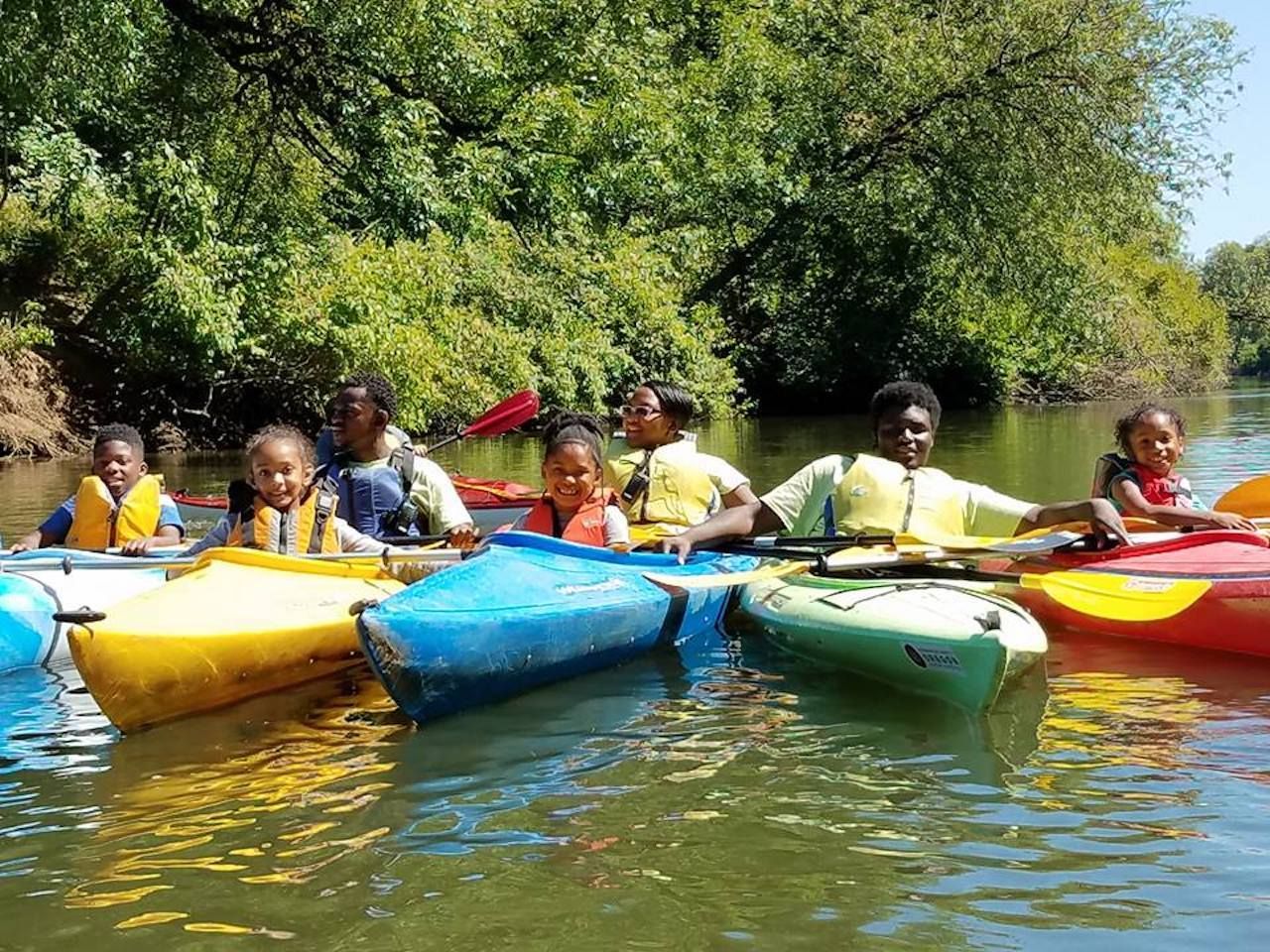Most summers, millions of US children head off to spend a week, a month, or the whole summer attending camp, where they’ll enjoy the restorative power of nature, learn new skills, strengthen friendships, and hopefully build upon a lifelong relationship with the outdoors. The problem is, these camps are not representative of the country as a whole.
“Only about four percent of campers in America identify as Black or African-American, even though we make up 13 to 14 percent of the population,” says Angelica Holmes, who runs Camp Founder Girls in San Antonio, Texas. “There are a lot of barriers and gaps in access.”
The camp was established nearly 100 years ago as a “the first historically Black summer camp for girls” and reopened last year under the umbrella organization of Black Outside, which seeks to bring Black youth from San Antonio into the outdoors.
